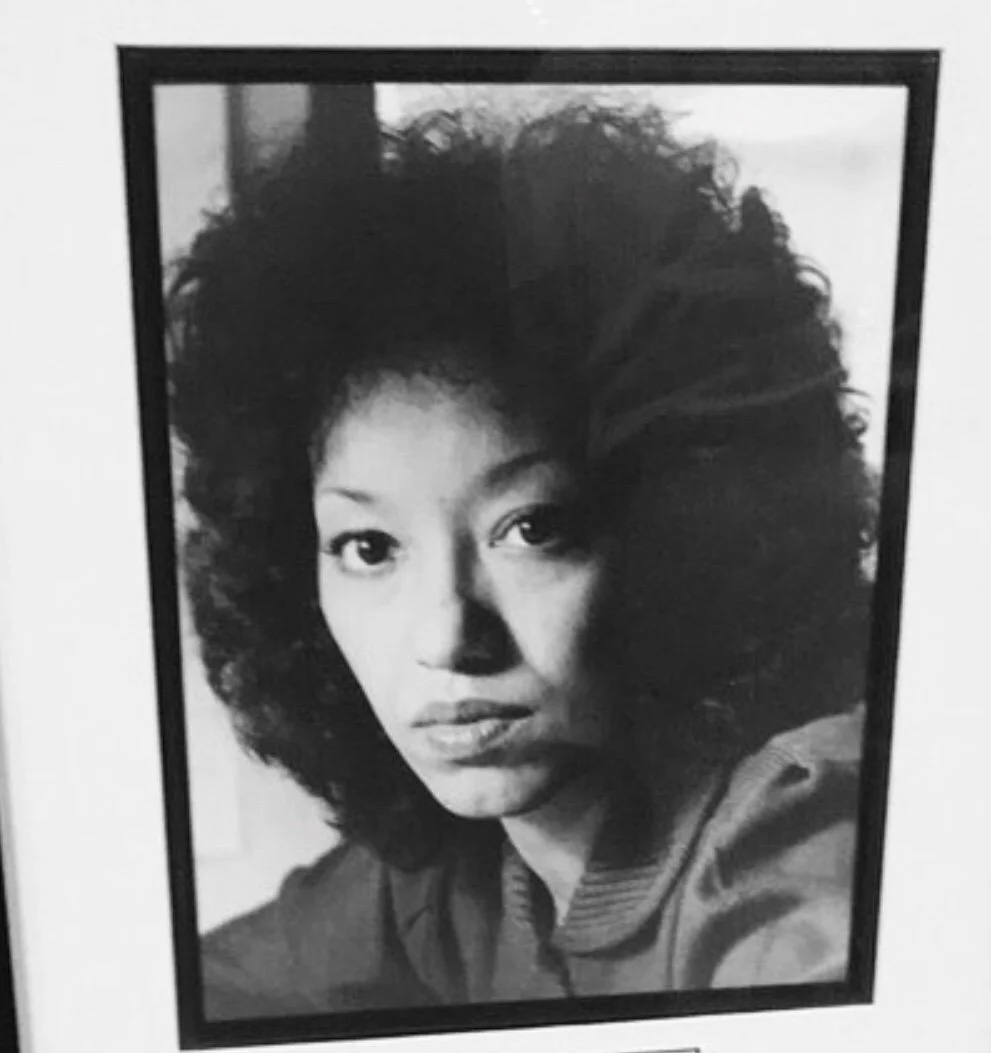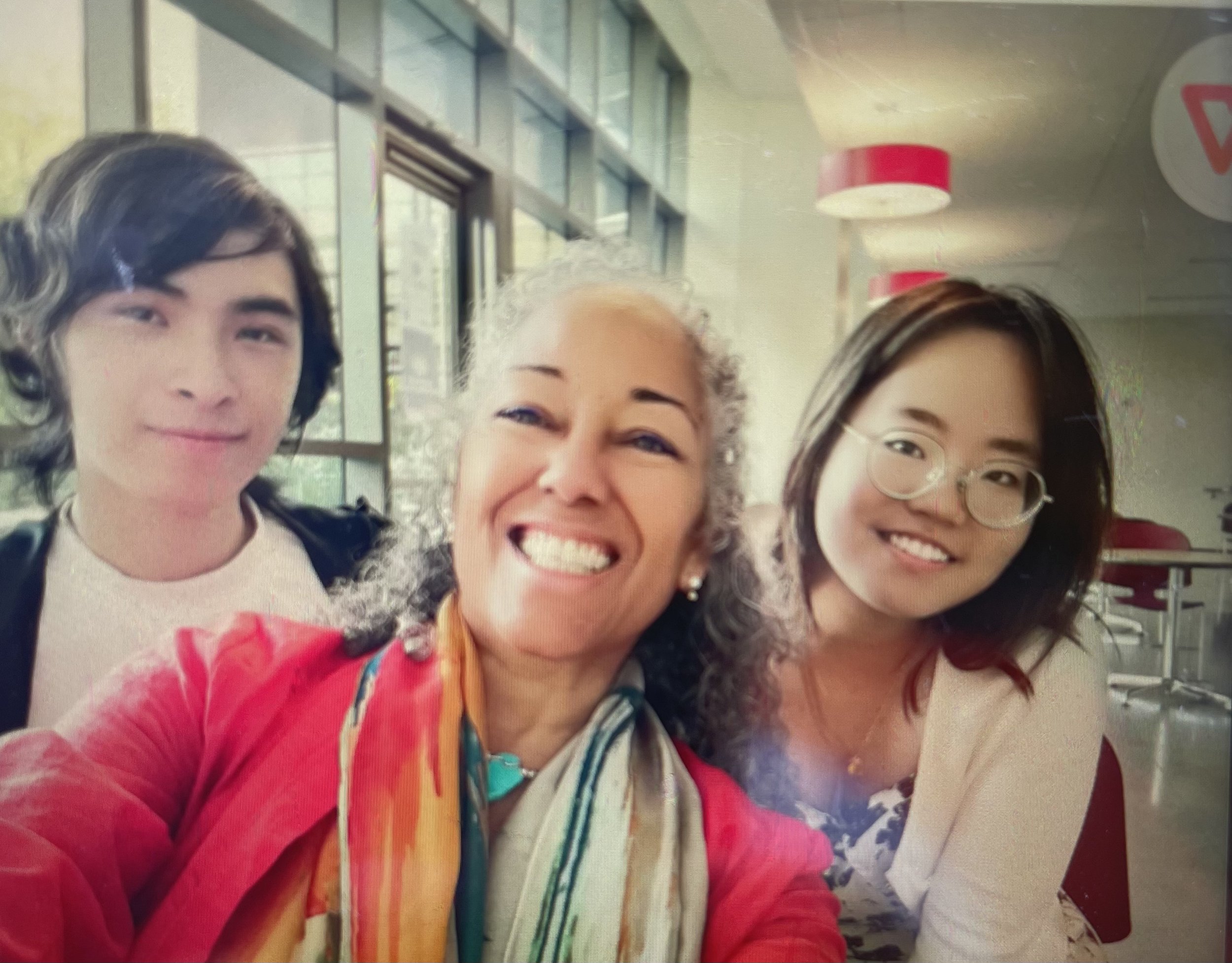Jackie Modeste
Founder
I am an intellectually curious global wanderer who loves music. For more than 30 years, I’ve served higher-education as a faculty member, senior administrator and alumni board member. I’ve used music to connect with students, build communities, forge mutual understanding and otherwise transcend the real and perceived barriers that separate us. At my beloved Columbia University, in a graduate seminar in English taught by Professor Robert G. O’Meally, I was introduced to the life and work of Cultural Historian Albert Murray – and that moment changed my life.
My oldest, another proud Lion TC ‘22
My youngest son, Emilio, performing with legendary Bassist Stanley Clarke
A son of Magazine Point, Alabama, near the port city of Mobile, Albert Murray believed his geographic location was magical – it gave him access to the world though the Seven Seas. The region’s rich music and culture, variety of people and culinary delights only affirmed for Murray that people were more alike than different. His belief that US culture is “incontestably mulatto” shaped his worldview. As he traveled the world, Murray immersed himself in people and their culture. He lived a storied life. A Tuskegee graduate and author of numerous essays, novels and seminal texts exploring the depths and contours of American culture, Murray also co-founded Jazz at Lincoln Center; was a member of the American Academy of Arts & Letters and held countless other awards and distinctions. In many ways, my life’s work is a tribute to Murray.
But it was my mother – born in Iowa to a woman from Durant, Mississippi, and a man of Japanese heritage, the first in his family born in the US – who shaped my life. From the time she was a toddler, Mom was raised by her mom and new husband, a native of Yazoo County, Mississippi, an exceptionally successful businessman. In Iowa, Mom dreamed of a world beyond cornfields. She poured through magazines determined to see all the glossy pages contained. In Iowa, she became a journalist; not a writer for fashion or society but real news, hard news. On the long train ride to college on the East coast, with a trunk filled with the finest clothes and furs, my mother lit her first cigarette, calmed her nerves and with steel-rugged determination, she left home for good. My parents met in college; she was a journalist, he was a chemist. My paternal grandparents lived in New York City. Queen and her husband, a Navy man who eventually retired from the United Nations, were part of a very large, well-educated family.
Mom’s innate curiosity, constant research and fierce determination helped me see possibilities and imagine. Leading by example, Mom showed me new horizons and I moved towards them confidently and with a sense of purpose. I have always felt “at home” in the world. Mom marrying Papa, my Panamanian stepdad and an international journalist, helped with that too. The languages, foods, music and people who have always filled my home brought the world to me and also made the world feel very familiar. Though Mom’s courage and sense of wonder fueled my own, years later when I left for China – she was surprised but that’s another story.
Papa, Mom and me in the middle
Mom, the journalist, New York City, circa 1980
With two young boys (now adults) and after earning a PhD in American Studies with a focus on the blues and jazz in US culture – thanks to the gift of “time” from Uncle Robin and the mentorship and support of Bob Gross and Bob O’Meally – I was determined to test the theories I’d been developing in the classroom, in the world. For me, the blues and jazz were more than favorite pastimes, they were keys for connecting people, transcending barriers and forging mutual understanding – beyond the bandstand. Musical communities formed emotional bonds and at the Max Planck Institute in Berlin, I had a chance to meet with a group of researchers studying this very topic. At the Institute for Cultural Diplomacy in Berlin, I delivered a keynote funded by the Louis Armstrong Foundation and also served on a panel with Ministers of Finance, Labor and Culture from a variety of nations grappling with ways to improve life and reduce societal and economic malaise. In Norway, I met a lifelong friend and mentor and continued to expand my ideas for using jazz as a tool for cultural diplomacy and shaping policy.
At the Clinton Institute at University College Dublin, I delivered a foreign policy talk that advanced ideas I’d been developing. I’ve explored the idea of culture guiding policy and performance around the world since 2002. My radio show, Trading Fours with Drs. Modeste & Wes was a live online broadcast (before podcasts) designed to build a community that transcended borders and engaged conversations typically siloed by industry boundaries. Prominent guests from Azerbaijan, Germany, Japan, Poland, Singapore, Taiwan and the US joined our weekly conversations. Together we formed a global community that exposed and explored the intersections of jazz, education and business. Conversations of Consequence – coming soon to a campus radio station near you, thanks to the Strada Education foundation – is the next phase of Trading Fours. A talk I gave at Beijing Normal University on Global Education in May of 2022, however, stands out as personally significant because it codified ideas I’d been exploring for 20 years.
Beijing, 2022
Norway, 2003
The classroom, however, is my laboratory for ideas. My students typically hail from more than 30 nations and speak as many languages. In one class on African diasporic literature, I had five Muslim students from five different African countries. In my Latin American literature and history courses, students counted as their homeland every country of the Caribbean, Central and South America. Students from Eastern Europe and Asia are always scattered through my classes and like all my students, they brought an awareness of the world to every discussion. Their perspectives and questions fed my own desire to know more and achieve greater precision in the development and articulation of my own ideas. Reaching them was more than a matter of savvy content delivery and pedagogical prowess, it required cultural competency and was aided by language proficiency and an awareness of the world beyond US borders.
My domestic students were often 1st-generation university students and helped ground discussions with the gravitas and immediacy of local concerns. The cultural insights, sharp critiques, passion and levity they brought to the often dismal realities of domestic matters defied the here and now and was a pathway to another (head) space and way of being. Our classroom conversations used course content as a launchpad to explore the vast beyond and showed up the intense relevance of the work we were “officially” studying. My students were amazing – all of them. Yet, they all struggled to navigate Western academic culture, campus communities and US culture. They struggled to find internships. My students struggled mightily and often silently with challenges including: homesickness, loneliness, and an enormous amount of pressure to succeed. If their home countries were also at war or experiencing a natural disaster, the pressure on students intensified.
I founded Global-Ed Immersion LLC (GEI) with my students in mind. When my students from Nanchang and Shenzhen met with me in Seattle, they shared stories that were just like those I’d always heard. They needed help beyond what universities could provide. It dawned on me rather quickly – only the most affluent families can afford the personalized support students actually need. I formed GEI’s sibling organization, The Global-Ed Immersion (GEI) foundation , to provide transition services and personalized support for international and 1st-generation students enrolled in or intending to enroll in US universities. Officially, The GEI foundation closes gaps in education and opportunity, develops global citizens and builds community, mutuality and trust amongst learners in the world’s disparate regions. We’ve got some great programming and slowly but surely, we will change the way students experience education. Led by a dynamic Board of 11 professional women located on four continents and an Advisory Council located on six continents and growing to 25 in Year 1, we are determined to make a positive impact, globally.
There’s much more to this story but you’ve read so much already! Join our journey by supporting our programming, making a donation and following us on IG @globaledimmersion
Yours, globally, Jackie Modeste
Chengdu, 2019 December









